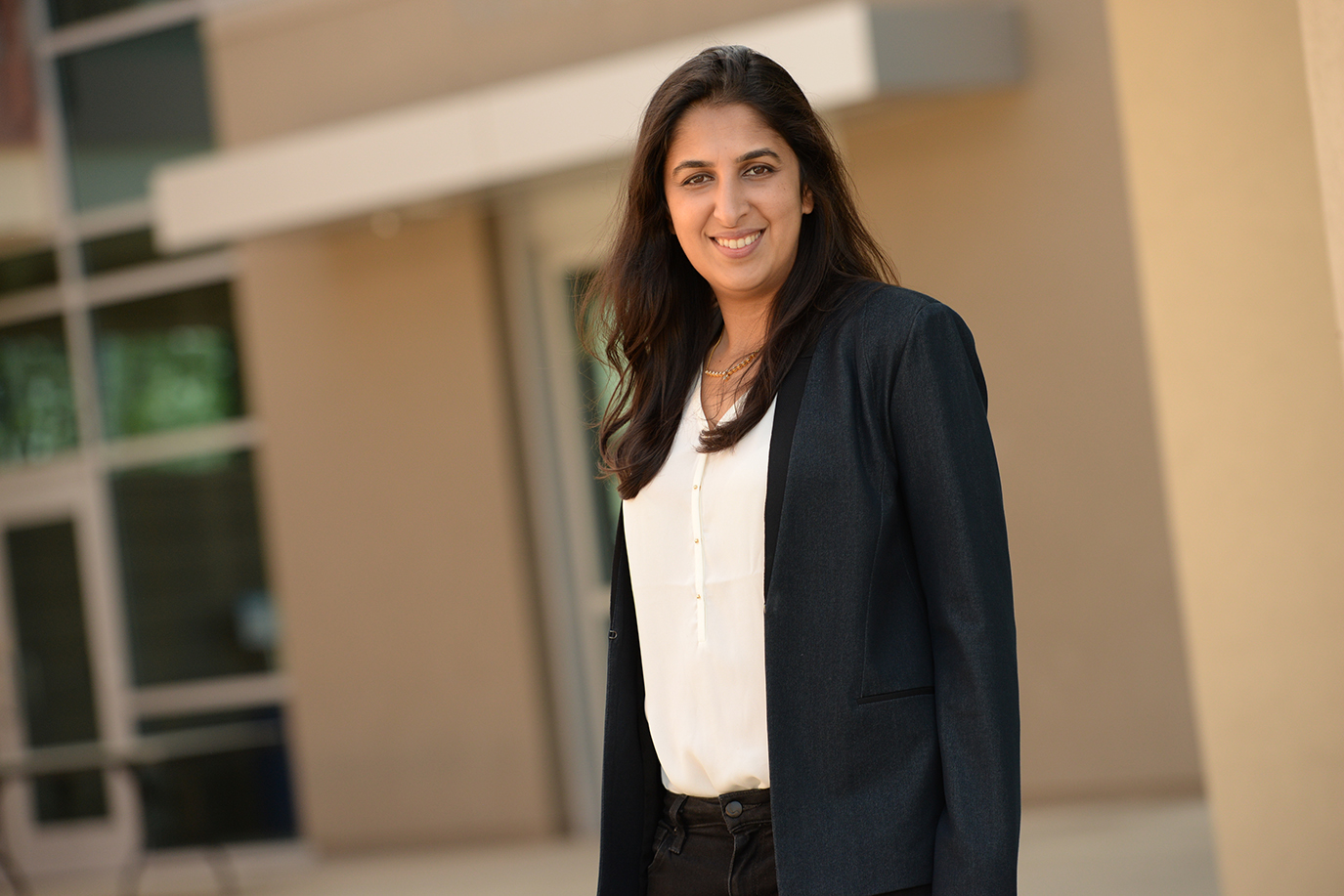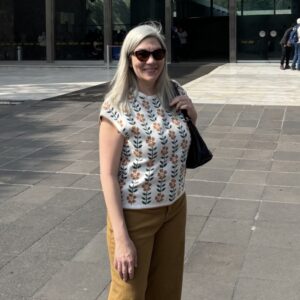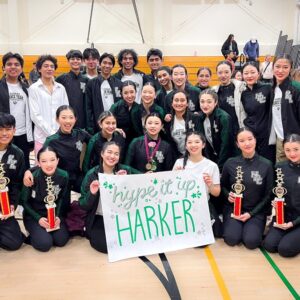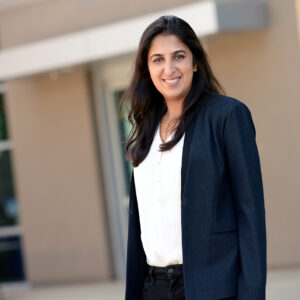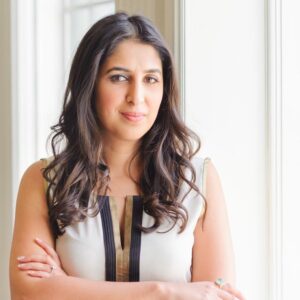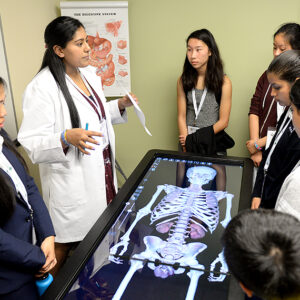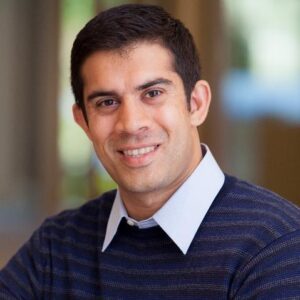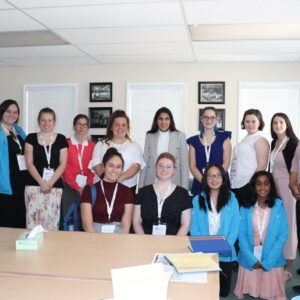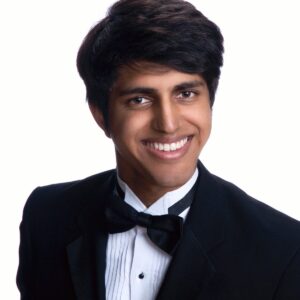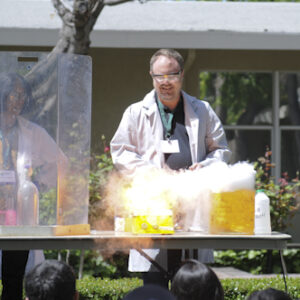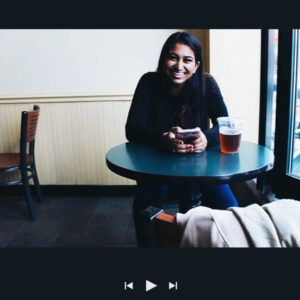The Harker community was delighted to hear that Surbhi Sarna ’03 sold her medical device company, nVision Medical, for $275 million to Boston Scientific, but the real story is about Sarna’s journey to help women who were being underserved in health care. The story is well-told in the Forbes article that announced the sale, and the Harker community has had the moving experience of watching Sarna travel her path to help others. CBS also did a news story on her.
After graduating from Harker, Sarna studied molecular and cell biology at the University of California, Berkeley, and worked as a clinical scientist at the Stanford University School of Medicine. After graduating from Berkeley in 2007, she worked as an engineer for medical device companies Abbott Vascular and BioCardia. In 2009, only six years out of Harker, she founded venture-backed nVision Medical, dedicated to developing technology to help gynecologists more quickly detect ovarian cancer. Following a successful clinical trial, the company received FDA approval for its device in November 2015. Harker has been honored to follow her progress.
In 2013 Sarna took time from her busy schedule to be the keynote speaker at the Harker Research Symposium, where she related the circumstances that fueled her drive to a crowd of about 400. After suffering from an ovarian cyst in her early teens, she became determined to create better conditions in the field of female health.
In January 2014, Sarna was named to Forbes prestigious “30 Under 30” list in the medical category. At that point, her company had raised $4.5 million from Catalyst Health Ventures, Draper Associates and Astia, a group that assists female entrepreneurs.
Sarna noted at the time, “It is a great honor to be chosen as one of Forbes ’30 Under 30.’ I know Harker has a lot do to with my drive to be an entrepreneur and I’m grateful for all of the teachers that inspired me while I was there.”
In the summer of 2016, Sarna was interviewed for an article in Harker Quarterly on alumni in science, in which she spoke of FDA approval for her device. “It was lots of work, but it couldn’t be more worth it. … From a dream, to a slide deck, to a prototype, to raising money and hiring a team, to first use in a person, to 90 patients successfully treated, to FDA approval!” she said in the article. Offering advice to other recent graduates interested in pursuing STEM and research education, she stressed the importance of seeking out mentors and advisors.
In 2017, Sarna was presented with the 2017 Distinguished Alumni Award by Harker’s Office of Alumni Relations and was honored at Homecoming halftime.
In the 2016 Harker Quarterly article, Sarna had advice for anyone with a quest like hers. “Take meetings with everybody, even when you don’t understand the direct benefit in doing so. Cast your net wide to open up doors,” she said. It is also important to follow your own passions, she added. “I started out as a patient, and I had to believe there were better options out there for women like me. I wanted to make a mark, and at the end of the day you have to follow your passions. It’s extremely rewarding to now be in a career providing service to others.”
For more news on the topic, see Silicon Valley Business Journal.
